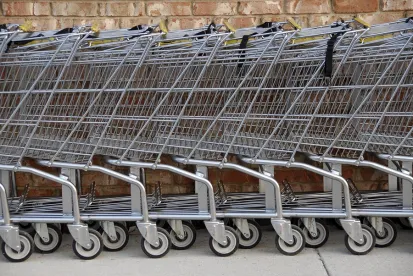We continue to cover the patchwork of price gouging laws and enforcement actions brought under them, providing an overview of the current legal landscape. We are also following and will report on the application of price gouging restrictions outside the U.S. In this post, we provide an overview of price gouging restrictions applied by several jurisdictions that may be important to our readers.
European Union
While there are not price gouging specific laws in the EU, under EU competition law, companies can be sanctioned for using their market power to exploit consumers, including by price gouging. Article 102 of the Treaty on the Functioning of the European Union (TFEU) provides that an abuse by a “dominant” business may consist of “directly or indirectly imposing unfair purchase or selling prices or other unfair trading conditions[.]” Dominance has been defined as “the power to behave to an appreciable extent independently of its competitors, customers and ultimately of its consumer.” This law applies to all goods and services. Dominant companies continue to be subject to excessive and discriminatory pricing restrictions, and authorities are likely to take an expansive approach when considering which companies are dominant, even if only as a result of the pandemic. Other rules may also be applied, like the EU unfair trade practices rules (see the May 11, 2005 Directive 2005/29/EC), which is implemented and enforced at the member state level, and several European jurisdictions have persuaded platforms such as Amazon and eBay to delist products advertised for sale at inflated prices where the seller is not a “trusted seller” on that platform.
UK
There are not price gouging specific laws in the UK. The UK’s Competition and Markets Authority (CMA), however, which “work[s] to promote competition for the benefit of consumers,” has launched a COVID-19 Taskforce to monitor price gouging and set up a form for consumers to report businesses that are perceived as behaving “unfairly.”
China
In China, price gouging is regulated by the Price Law, which generally requires “operators” to set prices based on, for example, fairness, the costs of manufacturing, and supply and demand. Other regulations may also apply to price increases, including antitrust and consumer protection rules.
South Africa
South Africa’s Competition Act, like Article 102 of the TFEU, prohibits excessive pricing by “dominant” businesses. South Africa, however, has relatively low thresholds for establishing dominance. Section 7 provides that a business with a market share above 45 per cent is irrebuttably presumed dominant, while one with a market share of above 35 per cent is rebuttably presumed dominant, unless it can demonstrate that it does not have “market power.” Companies with market shares of less than 35 per cent may also be dominant where they are found to possess “market power,” which the Act defines as the power to “control prices, to exclude competition, or to behave to an appreciable extent independently of its competitors, customers, or suppliers.”
U.S. Territories
American Samoa’s Commerce and Trade regulations prohibits price gouging “during states of disaster.” During an emergency, it is unlawful to “sell, rent or offer to sell or rent any consumer food items or goods, emergency supplies, medical supplies, building materials, housing, gasoline, or any other goods or services necessary in an emergency response for a price of more than ten percent (10%) above the price charged by that person, contractor, business or other entity for those goods or services immediately prior to the declaration of a state of emergency.”
Guam, under its deceptive trade practices act (Guam Code Ann. tit. 5, §32201), prohibits price gouging during disasters, with some exceptions. The Governor of Guam also passed a bill in March, 2020 Public Act 35-74, that permits short-term freezes on price increases on specified goods and services, beyond the addition of any “increased import” or “air freight” costs.
The Northern Mariana Islands’ Consumer Protection Act makes it unlawful for any business to engage in price gouging, which the Attorney General has defined as “when a business increases prices based on the shortage of goods caused by a natural disaster or any other emergency.”
We have noted elsewhere, during emergencies, Puerto Rico law prohibits “speculative, unwarranted, and abnormal increases in prices,” “excessive profits,” and “other disruptive practices resulting from abnormal market conditions and scarcity caused by the national emergency[.]”
The U.S. Virgin Islands allows the government to freeze price increases during states of emergency (V.I. Code Ann. tit. 23, §1005).
Navajo Nation
In response to the pandemic, the Navajo Nation approved the enactment of a law prohibiting excessive pricing during emergencies, which makes it unlawful “for any person to intentionally, knowingly or recklessly sell or rent any commodity or rental facility to any person at a price greater than ten percent (10%) above the average price of the same commodity or rental facility for the thirty days immediately preceding the declaration of a state of emergency.”







 />i
/>i
